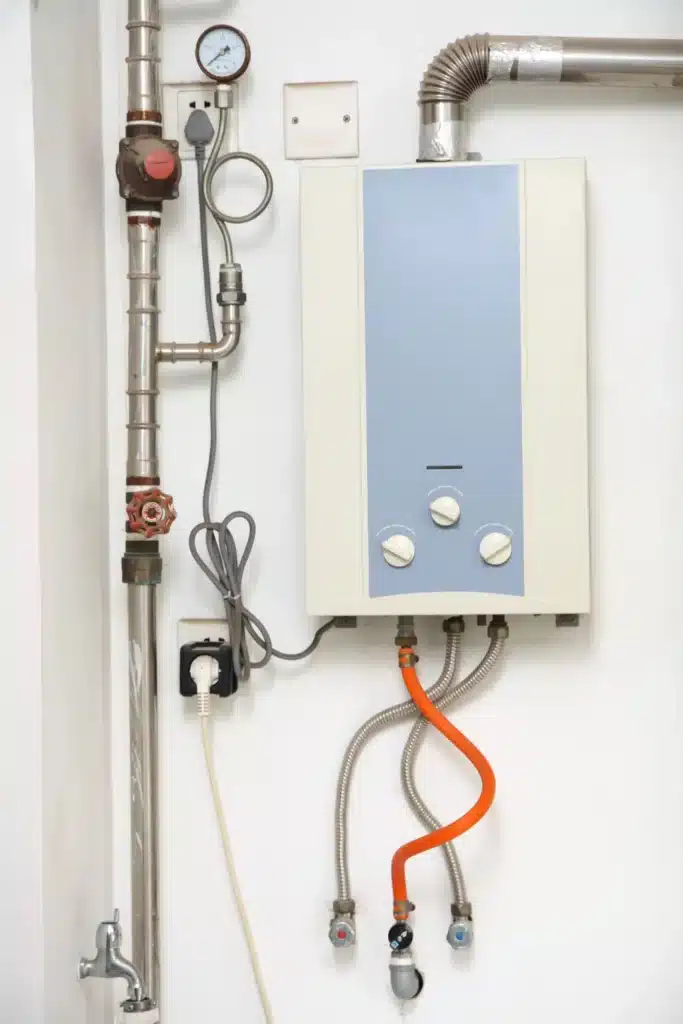Thinking about upgrading your home’s water heating system? A tankless water heater might be the perfect solution for you. Unlike traditional water heaters that store hot water in a tank, tankless models heat water on demand. This means you get hot water whenever you need it without the drawbacks of a bulky storage tank.
Tankless water heaters have gained popularity for several reasons. They offer significant energy savings, which can reduce your utility bills. Moreover, their compact size makes them an excellent choice for homes where space is at a premium. Their design also tends to be more durable and less prone to the problems that plague conventional water heaters, like tank leaks or sediment build-up.
By understanding how tankless water heaters operate and the benefits they bring, you can make an informed decision about whether this upgrade is right for your home. In this article, we will explore the fundamentals of tankless water heaters, discuss their advantages, and detail the long-term care needed to keep them running efficiently. This will help you see why so many homeowners are making the switch to tankless systems.
How Tankless Water Heaters Work: The Basics
Tankless water heaters, also known as on-demand water heaters, operate by heating water directly as it is needed. Unlike traditional models that store a large volume of water in a tank, tankless systems activate only when you turn on a faucet or appliance requiring hot water. Inside the unit, a powerful gas burner or electric element heats the water as it flows through, delivering a continuous supply of hot water.
The process starts when water enters the heater through a cold-water inlet. A sensor detects the flow and ignites the heating element, rapidly increasing the temperature of the water before it exits through the hot-water outlet to your home. This efficient mechanism eliminates the wait time for hot water and ensures you have a constant supply, making daily activities like showering or washing dishes more convenient and comfortable.
Energy Efficiency and Cost Savings with Tankless Water Heaters
Tankless water heaters are renowned for their energy efficiency. Because they don’t keep a tank of water hot all the time, they use less energy. Traditional water heaters expend significant energy to maintain the temperature of stored water, a process known as standby heat loss. In contrast, tankless systems only heat water as needed, reducing overall energy consumption and leading to substantial cost savings on your energy bills.
In addition to saving energy, tankless water heaters are also more efficient in their use of fuel, whether gas or electric. Many models achieve up to 98% efficiency, meaning nearly all the energy consumed is converted directly into heating water. These savings can add up over time, making the initial investment in a tankless system worthwhile. Furthermore, some utility companies offer rebates or incentives for installing energy-efficient systems, providing additional financial benefits for homeowners upgrading to tankless water heaters.
Space-Saving Benefits for Modern Homes
One of the major advantages of tankless water heaters is their compact size. Unlike traditional water heaters that require a large tank to store and heat water, tankless models heat water on-demand. This means they don’t need to hold a reserve of hot water, allowing the units to be significantly smaller. We can easily mount these heaters on a wall or fit them in tight spaces, freeing up valuable storage or utility space in your home.
Modern homes, especially those in urban areas, often have limited space. The streamlined design of tankless water heaters makes them an ideal choice for small apartments, condos, or any home where space is at a premium. Additionally, by freeing up space, you can use previously occupied areas for other purposes, like expanding storage for household items or improving the layout of your utility room. The compact size and flexibility of installation options make tankless water heaters a smart and convenient choice for space-conscious homeowners.
Long-Term Reliability and Maintenance of Tankless Water Heaters
Tankless water heaters are designed to be highly durable and long-lasting. Traditional water heaters tend to have a lifespan of around 10-15 years, whereas well-maintained tankless water heaters can last up to 20 years or more. This longevity is due to their efficient design and quality materials. Knowing this, we can ensure your tankless water heater performs optimally, and you won’t have to worry about frequent replacements.
Maintenance for tankless water heaters is also generally simpler and less frequent compared to traditional systems. Regular maintenance involves descaling and flushing the system to remove any mineral build-up, which can be done annually or biennially depending on water hardness in your area. This helps maintain efficiency and prevents potential problems. Because they don’t store water, tankless models are also less prone to corrosion and leaks, making them a more reliable option in the long run.
Conclusion
Switching to a tankless water heater offers numerous benefits that cater to the needs of modern homeowners. Their space-saving design, energy efficiency, cost savings, and long-term reliability make them an excellent investment for any household. Understanding how these systems work and the advantages they provide can help you make an informed decision about upgrading your home’s water heating solution.
If you’re ready to experience the benefits of a tankless water heater, reach out to Turner Plumbing today. Our team of experts is here to guide you through the selection and installation process, ensuring you get the most out of your new system. Contact us now to start enjoying efficient, continuous hot water in your home.






